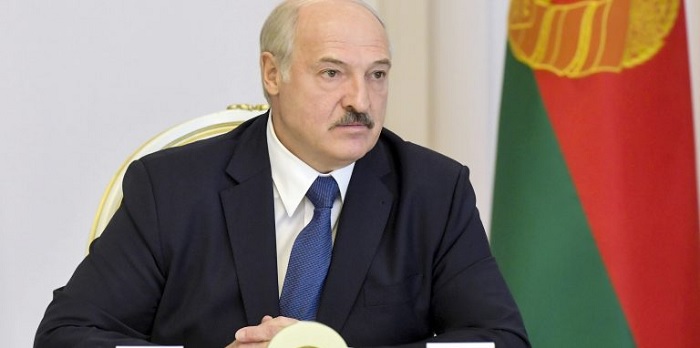
The August 9 election of Aleksandr Lukashenko as President of Belarus saw the authoritarian strongman secure his 6th term in a country long known as Europe’s last dictatorship, sparking nationwide protests.
Tensions with Moscow will place the incumbent government under significant pressure that may not withstand popular dissent or a more heavy-handed Russian intervention.
Despite historical, cultural, and political ties with Moscow, Lukashenko has proven wary of fully submitting to Russian President Vladimir Putin.
Even if mounting pressure from the West fails to end Lukashenko’s rule, the strongman will have to make changes to relieve crushing economic and human rights sanctions.
The August 9 election of Aleksandr Lukashenko as President of Belarus saw the authoritarian strongman secure his 6th term in a country long known as Europe’s last dictatorship. The election was considered a sham and led to nationwide protests that have entered a second week. Lukashekno has maintained power for twenty six years. But against a backdrop of an inept response to COVID-19 (Lukashenko recommended vodka, saunas, and tractor rides to ward off the virus), a social-media-savvy youth agitating for change, and serious economic challenges, Belarus is on the precipice of a political revolution. Thousands of protesters have been jailed and several deaths have been reported. The ‘women in white’ movement has taken to the streets to support opposition candidate Svetlana Tikhanovskaya and gender reform in the largely patriarchal society. Women, who comprise a majority of the doctors in Belarus, have suffered a disproportionate number of deaths due to the spread of the coronavirus and were thus among the first demographics to protest the election. Last Sunday, in the largest protest in the history of the country, hundreds of thousands of protesters turned out in Minsk. The protesters were inspired by Tikhanovskaya, who captured unexpected support when she emerged as a candidate following her husband’s arrest.
Sensing a potential opening following a strain in Belarusian-Russian relations at the beginning of 2020, the United States and European oil exporters began pushing to normalize relations with Lukashenko. U.S. Secretary of State Mike Pompeo visited the country in February 2020 and promised that Washington could fulfill all of Belarus’ energy needs (a sector that Russian businesses have historically dominated). Western sanctions were slowly lifted after Minsk demonstrated commitment to releasing political prisoners and tolerating political opposition. However, following the use of state-sanctioned violence in the wake of disputed election results, a partnership between Belarus and the West remains uncertain. The European Union is almost entirely in favor of reapplying sanctions to Belarus, the sole holdout being Hungarian strongman Viktor Orban. A U.S. State Department press release criticized what it considered ‘unfair elections,’ and the European Union condemned the elections as illegitimate. Lukashenko might now find himself stuck midway between Russia and the West. Tensions with Moscow, coupled with the sanctions that the post-election crackdown are likely to invite, will place the incumbent government under significant pressure that may not withstand popular dissent or a more heavy-handed Russian intervention. Most experts believe Russia will refrain from direct military involvement, especially if the Kremlin can work behind the scenes to influence a successor government dependent on Moscow. But with Putin’s penchant for risk, anything remains possible.
Relations between Russia and Belarus grew complicated earlier this year after the two countries failed to renew an oil supply contract. The fallout intensified when 32 Russian nationals were arrested in Belarus before the election and accused of preparing to influence the results, operating under the guise of the Wagner Group. The mercenaries, allegedly found with Russian passports, stacks of $100 bills, and telephone cards from Sudan, claimed to be in transit to Africa, but their presence aggravated existing fears regarding external interference. Lukashenko has previously challenged foreign powers for meddling in Belarusian politics and has been particularly incensed by what he describes as Russian attempts to force Belarus into a proposed ‘Union’ state. Despite historical, cultural, and political ties with Moscow, Lukashenko has proven wary of fully submitting to Russian President Vladimir Putin, and maintains an interest in Belarus’ sovereignty. However, Minsk’s escalating protests leave the Belarusian strongman with a shortage of options, and somewhat desperately, Lukashenko has reached out to Moscow for help. Well aware of the implications of regime change in a former vassal state on its periphery, Putin has promised to provide ‘comprehensive assistance.’
Despite Putin’s help, Belarus might never return to its pre-election status quo. Even if mounting pressure from the West fails to end Lukashenko’s rule, the strongman will have to make changes to relieve crushing economic and human rights sanctions. Releasing political prisoners, protesters, and loosening government control of the media would be only the bare minimum necessary toward lifting EU sanctions. Putin warned European countries on Tuesday against interfering in Belarus. As for U.S. demands, Belarus may be too late to act and suffer a fatal blow to its centrally planned economy if Washington invokes the Magnisky Act. The fate of Belarus’s democracy may be decided in the next few weeks and months after decades of sclerotic rule by a Soviet-era relic.. Earlier in the week, Tikhanovskaya spoke from exile in Lithuania, stating that she would be willing to take power in a peaceful transition. Nearly simultaneously, Lukashenko consented to the possibility of a new presidential election after being heckled by a crowd of tractor plant workers, the kind of blue-collar individuals forming his traditional political base. A reversal of the election decision would set an important precedent for regional politics, threatening Putin’s historical legitimacy in his own backyard. Accordingly, Moscow will likely do everything in its power to discredit and dismantle the democratic movement in Belarus, and organizers should prepare for a long and bitter struggle in their quest for sustainable change.
 Eurasia Press & News
Eurasia Press & News



